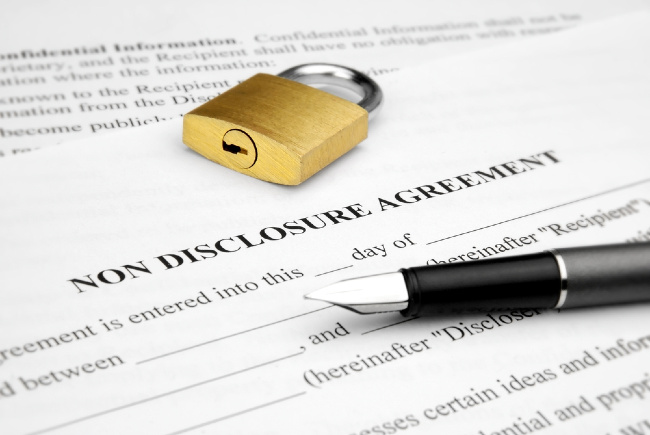In the world of business, companies often need to share sensitive information with clients, employees, like-minded investors, vendors, and other relationships to grow their venture. However, it’s critical to keep confidential data from the public and competitors, especially for companies that typically work with freelancers, contractors, consultants, and other outsourced teams. That’s where a Non-Disclosure Agreement can assist you in protecting your information.
A Non-Disclosure Agreement or “NDA” is a legal contract that helps ensure against improper use of your sensitive information. This means that specified information shared between parties to the NDA must stay between the parties.
An “NDA” is often referred to as a Confidentiality Agreement, a Confidential Disclosure Agreement, a Proprietary Information Agreement, a Secrecy Agreement, or a Propriety Information and Inventions Agreement.
When Does Your Business Need an NDA?
1) Selling or Licensing a Product, Technology, or Invention
When you plan on licensing your product, technology, or any original invention, it’s important to require an NDA contract to ensure that a prospective buyer does not use your sensitive data and/or intellectual property to give them an edge when discussing other potential offers with your competitors.
2) When Employees Can Access Confidential Information
In many cases, companies need to open their proprietary information to select employees, especially those dealing with your suppliers, client list, and other professional agreements. This can become a liability if the employee decides to leave the company or is terminated, and beings working for a competitor. It is important to ensure that employees with access to sensitive information, including intellectual property, sign non disclosure agreements at the time of their signing an employment contract.
3) Establishing a Relationship With a Partner or Investor
Small businesses will need to expand their network by partnering with potential investors, but the process of scaling up with a future business partner can mean revealing trade secrets. Be sure to sign an NDA with the other party to protect your company in these situations.
4) Selling Your Business
If you’re thinking about selling your business, then it makes sense to leave no cards unturned for the prospective buyer since they will need to know all your financial and operational details to consider your offer.
However, there is a chance of that the buyer does not acquire your company after reviewing it (including sensitive information). In this case, protecting your information is a must, or you will risk disclosing information that can diminish your company’s overall value.
The Bottom Line: The Importance of Signing an NDA
Many businesses trust their partners, vendors, collaborators, or employees with their sensitive data, but failing to protect your proprietary information with a non-disclosure agreement (NDA) can have catastrophic consequences for your company, such as loss loss of revenue and litigation.
Are You Looking for Reputable Business Dispute Attorneys in Edmonton, AB?
Navigating through a myriad of legal complexities in business can be daunting, but our expert lawyers at Prowse Chowne can take the guesswork out of your business litigation, employment contracts, dispute resolution, and more.
We’re an industry-established law firm in Alberta, CA, that have lawyers spanning many different legal practices, so get in touch with us today if you need assistance with protecting your sensitive information or intellectual property.

